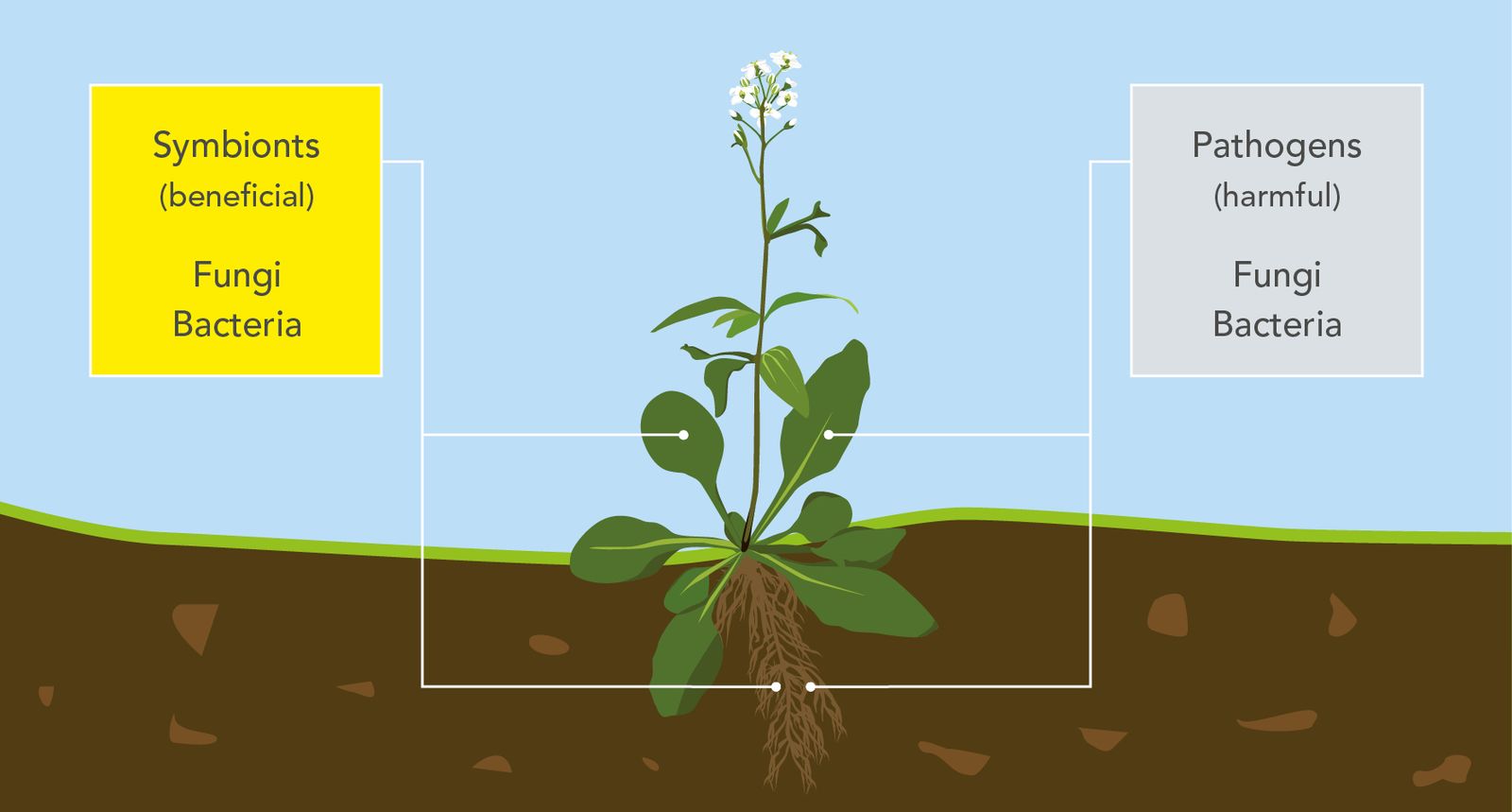Research Area C: Plant-Microbe Interactions
The molecular basis of plant-microflora interaction
The interaction between plants and their endophytic microflora is a complex trait, involving reciprocal adaptation between the interacting partners. Since associations with some endophytic microbial species are beneficial for plants, these interactions can be exploited to enhance plant performance. However, the endophytic microflora of plants remains largely unexplored. Recent technological advances (e.g., next generation sequencing, computational biology, metagenomics and culture-independent microbe detection) allow us to probe these interactions for the first time, and we can begin to understand the fundamental mechanisms shaping endophytic microbial populations and fitness consequences on the host.
The aim of research area C is to characterise the structure, function and ecology of the plant microbiome within and between species of the Brassicaceae. Therefore, we will investigate the influence of specific biotic (genetic variation in host and microbe) and abiotic factors (phosphate limitation and temperature) on the composition and activities of associated root and leaf microbial communities. The genes in both host and microbe that determine the outcome of these interactions will be identified. In close collaboration with our partners in research area D, we will expand upon our genetic studies to determine the reciprocal effects these interactions have on the production of secondary metabolites in the hosts and microbes.
Knowledge gathered from our studies on the plant microbiome will provide novel tools and approaches to improve plant performance in normal and/or stressed conditions and hence offer methods for crop improvement.

